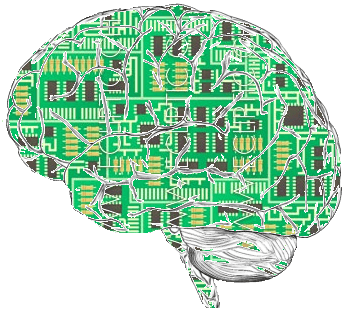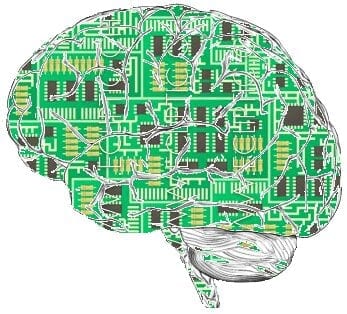
A virtual shrink may sometimes be better than the real thing
ELLIE is a psychologist, and a damned good one at that. Smile in a certain way, and she knows precisely what your smile means. Develop a nervous tic or tension in an eye, and she instantly picks up on it. She listens to what you say, processes every word, works out the meaning of your pitch, your tone, your posture, everything. She is at the top of her game but, according to a new study, her greatest asset is that she is not human.
When faced with tough or potentially embarrassing questions, people often do not tell doctors what they need to hear. Yet the researchers behind Ellie, led by Jonathan Gratch at the Institute for Creative Technologies, in Los Angeles, suspected from their years of monitoring human interactions with computers that people might be more willing to talk if presented with an avatar. To test this idea, they put 239 people in front of Ellie (pictured above) to have a chat with her about their lives. Half were told (truthfully) they would be interacting with an artificially intelligent virtual human; the others were told (falsely) that Ellie was a bit like a puppet, and was having her strings pulled remotely by a person.
Designed to search for psychological problems, Ellie worked with each participant in the study in the same manner. She started every interview with rapport-building questions, such as, “Where are you from?” She followed these with more clinical ones, like, “How easy is it for you to get a good night’s sleep?” She finished with questions intended to boost the participant’s mood, for instance, “What are you most proud of?” Throughout the experience she asked relevant follow-up questions—“Can you tell me more about that?” for example—while providing the appropriate nods and facial expressions.
Lie on the couch, please
During their time with Ellie, all participants had their faces scanned for signs of sadness, and were given a score ranging from zero (indicating none) to one (indicating a great degree of sadness). Also, three real, human psychologists, who were ignorant of the purpose of the study, analysed transcripts of the sessions, to rate how willingly the participants disclosed personal information.
The Latest on: Artificial intelligence and psychology
[google_news title=”” keyword=”Artificial intelligence and psychology” num_posts=”10″ blurb_length=”0″ show_thumb=”left”]
via Google News
The Latest on: Artificial intelligence and psychology
- Artificial intelligence isn’t just for tech students. All classrooms are finding ways to wield — and educate about — the powerful toolon April 25, 2024 at 3:00 am
Kennelly, animated and enthusiastic, is on the cutting edge. A new RAND study shows that as of the fall of last year, just 18 percent of educators said they use AI for teaching. Most used it to adapt ...
- Harvard Kennedy School faculty members get creative and collaborative in a new artificial intelligence course moduleon April 23, 2024 at 7:19 am
Since Open AI’s ChatGPT arrived at the end of 2022, generative artificial intelligence has been big news, with many companies scrambling to develop their own tools. The technology is already changing ...
- War and Artificial Intelligenceon April 23, 2024 at 7:10 am
The use of artificial intelligence in war threatens humanity. However, there are no rules or ethics for its use.
- ChatGPT-4 outperforms human psychologists in test of social intelligence, study findson April 19, 2024 at 5:00 am
an associate professor of clinical psychology at Qatar University. “The superiority of artificial intelligence in the areas of perceiving and understanding people’s emotions may mean that it will ...
- Artificial Integrityon April 8, 2024 at 1:36 pm
It includes many dimensions, some extensively documented by science—whether it is in the fields of psychology, philosophy, neuroscience, education, learning sciences, or artificial intelligence ...
- Is Artificial Intelligence Actually Sentient? Here's What An Expert Sayson April 6, 2024 at 8:30 am
Modern AI has some impressive capabilities, but it capacity is mostly limited to derivative work. It makes us wonder, is AI even sentient? We asked an expert.
- Study uses artificial intelligence to show how personality influences the expression of our geneson March 31, 2024 at 5:00 pm
An international study using artificial intelligence has shown that our ... team (made up of specialists in genetics, medicine, psychology and computer science) used data from the Young Finns ...
- Artificial Intelligence and Consciousnesson March 20, 2024 at 5:19 pm
We’ve seen a recent explosion in the number of discussions about artificial intelligence (AI ... The role of information in consciousness. Psychology of Consciousness: Theory, Research, and ...
- Minors and Immersionson January 25, 2024 at 8:52 pm
It includes a course on Principles of Data Science, foundational for modern artificial intelligence systems, emphasizing the pervasive impact of computing on society and culture. The study of ...
- Celebrating 80 Years Of Hallucinating About Artificial Intelligenceon December 30, 2023 at 5:37 pm
Artificial intelligence, especially generative AI ... especially when they appear in papers in biology, economics, or psychology. Scientific theories, however, are tested by empirical evidence.
via Bing News











